- Who We Are
- How We Work
- Portfolio & Results
- Newsroom
- Resources
Migration and the Inclusive City
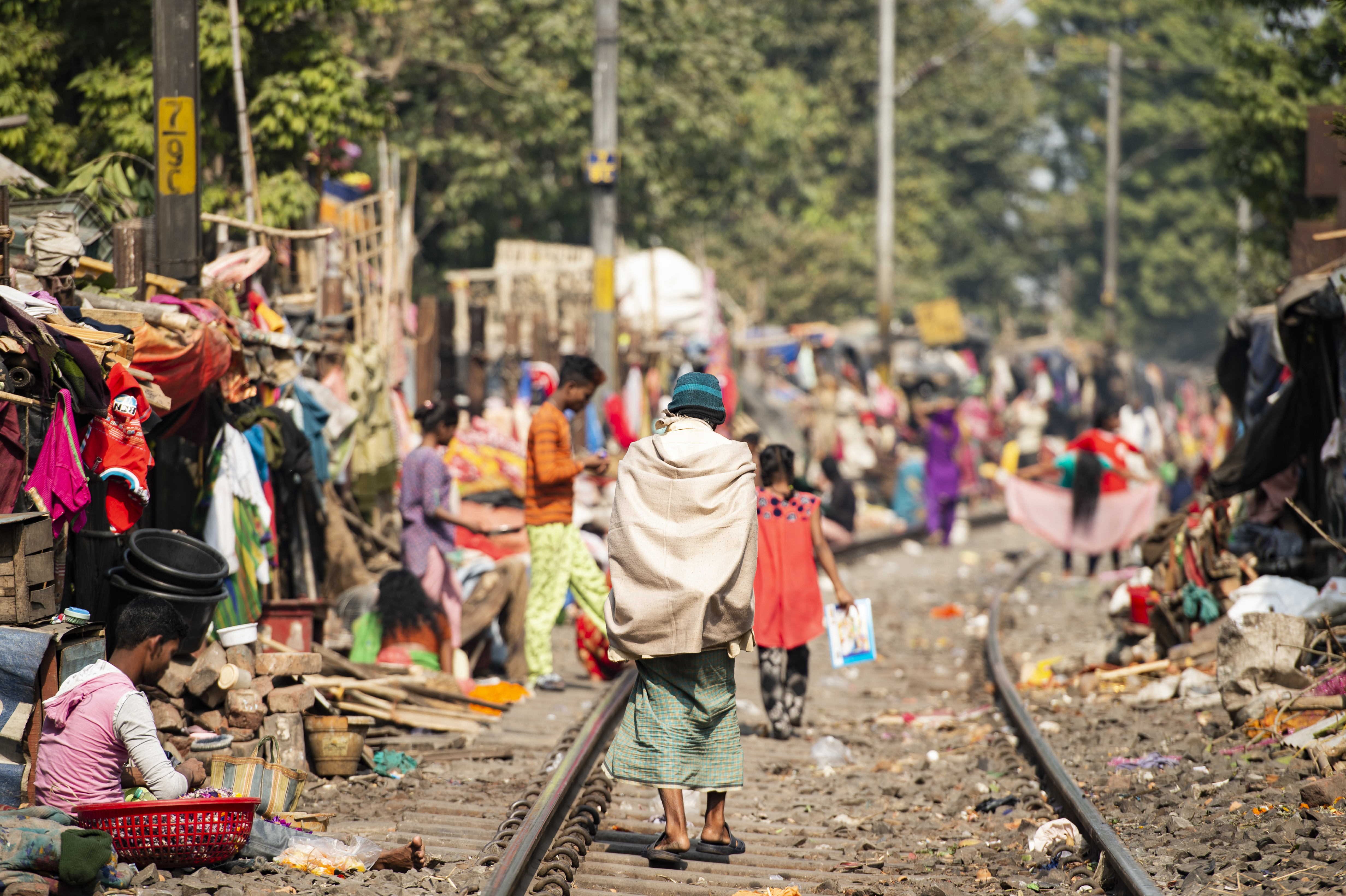
Migration and the Inclusive City
Through its work, the Cities Alliance recognises migration as an integral part of the development challenges shaping patterns of urban growth as well as the economic, social and cultural vibrancy of cities. The flow of money, knowledge and ideas between destination and origin cities can catalyse innovation and development at both ends, potentially making migrants key players in city growth, resilience and sustainability.
With this call for proposals, the Cities Alliance sought innovation in policy responses and practical approaches that increase spatial, social and economic inclusion by also extending to migrants the rights to the city: Access to land, services, opportunity, as well as to an urban citizenship.
Read an article on Five Ways Cities Benefit from Migration
Call for Proposals 2015 Concept Note [EN] [ES] [FR]
Argentina: Proyecto Sabores Sin Fronteras (Flavors without Borders)
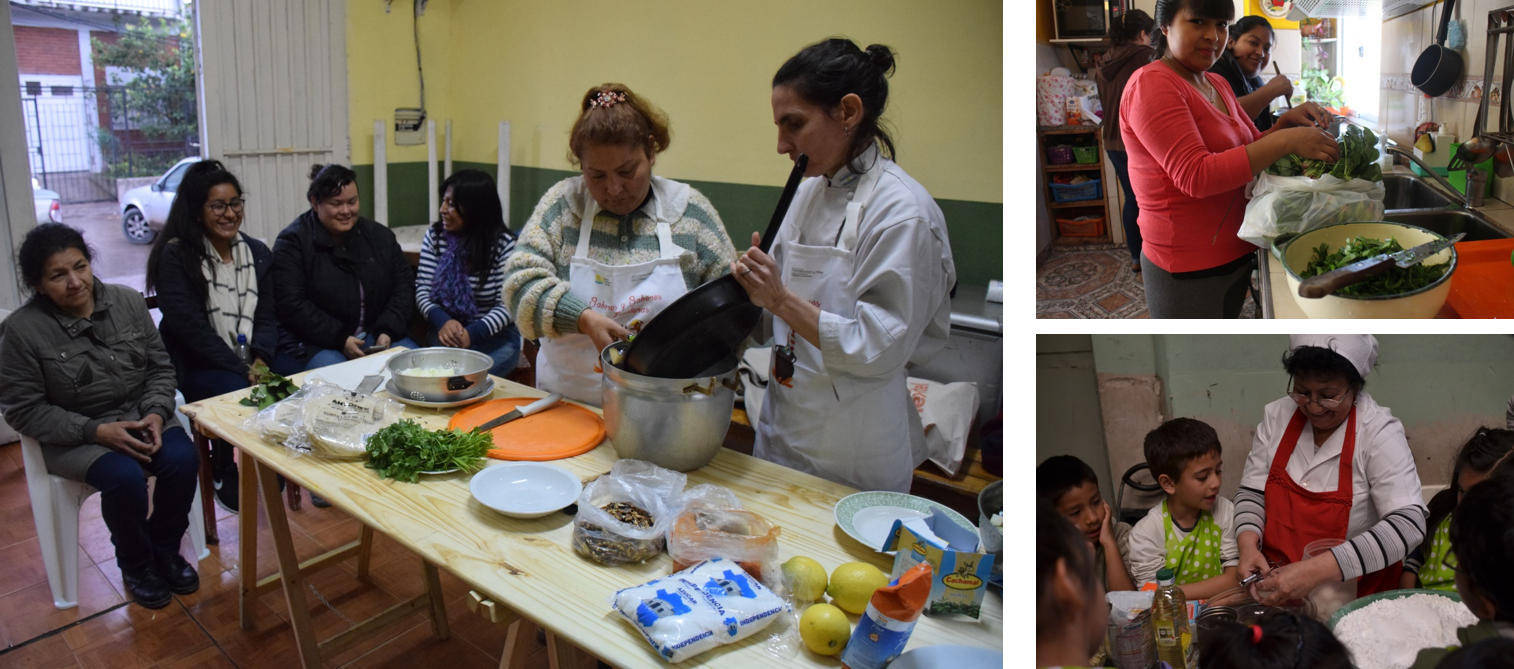
Income differences and access to public services vary greatly in the city of Buenos Aires. The difference is particularly striking in southern part of the city, where most of the slums are located and most recently arrived migrants settle.
The project Sabores sin Fronteras (Flavors without Borders) aimed to encourage and strengthen relationships among migrant women from different communities to pave the way for cultural exchange and develop tolerance and willingness to sustain dialogue, helping reduce social discrimination among the groups.
It organised workshops that offered tools and knowledge about nutrition, health and domestic economy. Each migrant community shared and teached the others how to prepare traditional recipes from their own cultures.
This activity builds on a similar workshop conducted in 2013. Notably, the participants in the 2013 workshop were leading the current activity and serving as the main motivators in the neighbourhoods. They were invited to participate in the planning of each of the project activities – an encouraging element that highlights the success of the approach so far.
The project was sponsored by Metropolis and is being implemented by the Secretariat for Habitat and Inclusion, Government of the City of Buenos Aires (SECHI).
Bangladesh: CityWorks - Enhancing Incomes, Empowerment and Opportunities for Domestic Workers in Bangladesh
Dhaka receives approximately 300,000 to 400,000 migrants each year from different regions of Bangladesh due to various impacts of climate change. Most of these migrants lack education and skills suited to city life, and they are generally unfamiliar with their rights and entitlements. Many migrant women work as domestic workers – the most unprotected and vulnerable working class in Bangladesh.
The CityWorks activity aims to provide skills training, employment matching through social enterprise, social safety, and financial services to unregistered domestic migrant workers in Bangladesh.
It took a four-pillar approach to ensuring rights and opportunities for domestic migrant workers: mobilising migrant domestic workers in a formal platform; economic empowerment; citizen dialogue; and changing public mindsets through campaigning. The approach combines the work of setting up a social development company while promoting larger, structural changes by engaging active citizens to negotiate for more accountable governments.
CityWorks was sponsored by United Cities and Local Governments Asia-Pacific (UCLG ASPAC) and is implemented by Oxfam.
Côte d’Ivoire: Migrants’ junior basketball league of Yopougon – Social integration through basketball in Côte d’Ivoire
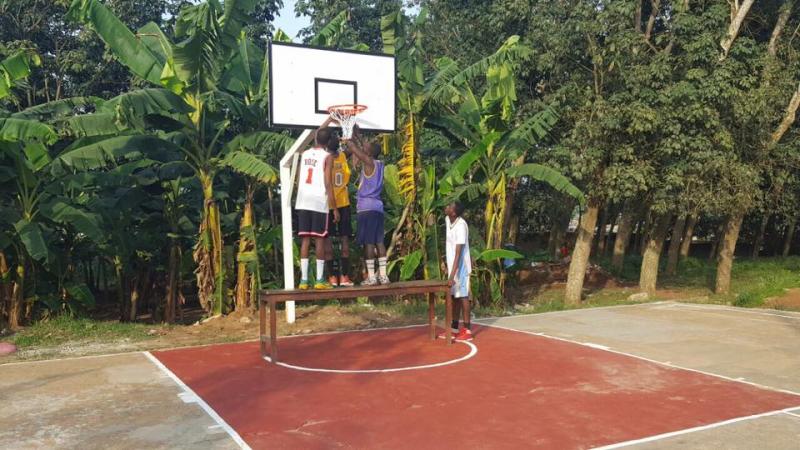
Watch a video about the project
The project aimed at fostering social inclusion of migrants in Yopougon, one of Abidjan’s most disadvantaged neighborhoods, in order to support migrants in playing a role in the urban growth of their city.
While the population of Yopougon may have their political and social differences, they all love sports, which bring together youths of all nationalities, origin and sex, playing within a set of rules and learning values such as tolerance, team spirit, fair play and solidarity.
This pilot project aimed to tap into the intrinsic positive characteristics connected to basketball to foster social inclusion of young migrants in Yopougon. It intended to enhance their mental and physical well-being and simultaneously create a forum of exchange and dialogue among different cultures. Youths also learned the importance of taking care of common spaces, like the game field and surrounding areas (plastic and garbage free zones).
The project worked with three schools and one club in the neighborhood. Special consideration was paid to the challenges that young migrant girls face, and activities were carried out to ensure their engagement in the project.
It was sponsored by Agence française de développement (AFD) and implemented by the International Organization for Migration (IOM).
Guatemala: Integracion de los migrantes en el mercado laboral y la economia local de las ciudades del Departamento de Guatemala
Watch a video about the project

In recent years deportation rates from the U.S. to Guatemala have increased due to anti-migrant legislation. Many end up in Guatemala City, which receives almost 100,000 deportees each year. The government of Guatemala has struggled to generate enough work-related opportunities for deportees, and support for them upon arrival is limited.
This activity helps integrate deported migrants into the labour market and local economy in Guatemala. It will establish an Intersectoral Committee for Labour and Social Inclusion, one of the first initiatives of its kind in the country. The committee will bring together representatives from different sectors who are directly related to migration and social inclusion, including the public and private sectors, academia, and civil society so they can join efforts and achieve more effective results.
The project also includes pychosocial support to help the deportees cope with the trauma of their experiences, training on forming technical, financial, political and trade unions, and training to complement competencies migrants have acquired abroad as well as access to job opportunities and entrepreneurship projects.
The activity is implemented by Fundación Avina and was sponsored by Habitat for Humanity Guatemala and GIZ.
Italy: Welcoming Bologna – a pilot experience of European Welcoming Cities
Check out the project website: http://www.welcomingbologna.eu/en/
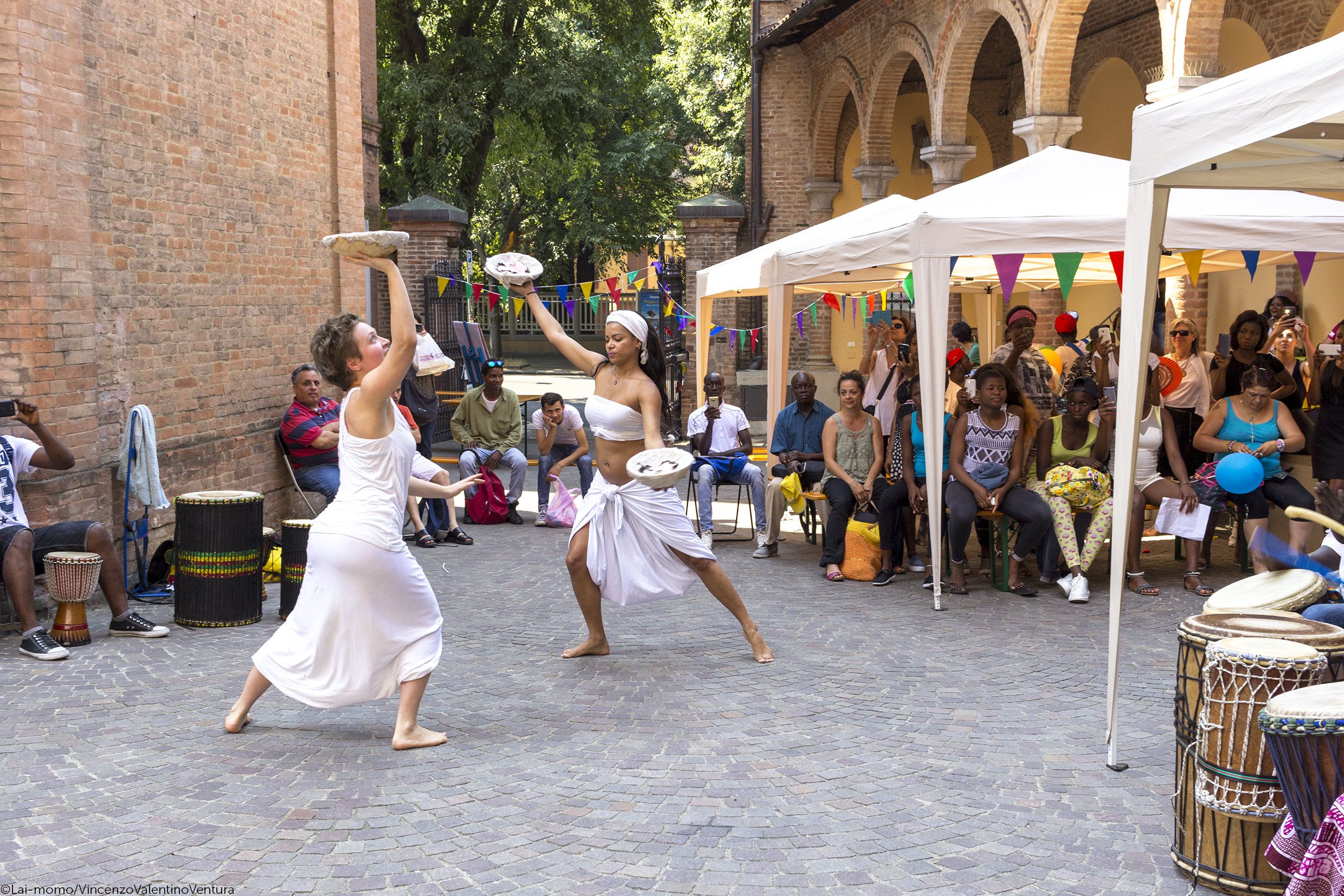
Migration to Europe has increased dramatically in recent years, primarily from the Middle East and Africa. Cities are facing the challenge of incorporating these migrants while dealing with reluctant long-term residents afraid of radical change.
Welcoming Bologna is a community development pilot project in the city, implemented by the NGO Africa e Mediterraneo in partnership with the Municipality of Bologna and the cooperative society Lai-momo.
Built on the success of the Welcoming America project in the U. S., Welcoming Bologna seeks to promote and communicate innovative, replicable urban policies responses and practical approaches for the inclusion of migrants in all aspects of the city life. It is structured around two main components: gathering urban actors together to co-plan community development initiatives involving both long-term residents and newcomers; and implementing an online and offline communication campaign to change the narrative on migrants and showcase the positive impact migration can have on a community.
The project was sponsored by UCLG, which will support the dissemination of results at the European level and promote the Welcoming model through European local authorities.
Jamaica: Reintegration and Rehabilitation of Involuntary Returned Migrants in Jamaica
High rates of migration and changes to immigration legislation in the U.S., Canada and the U.K. has brought an increase in the number of Jamaicans being deported from these countries.
The current activity complements and builds on existing initiatives at the national and local levels to strengthen systems to help provide more deportees with access to adequate social services, jobs and livelihood opportunities in Jamaica.
This innovative project seeks to strengthen the policy, legislative and institutional framework that guides the management and treatment of deportees to the island. This includes finalising the National Deportation Policy and developing a strategy and standard operating procedures (SOPs) for managing returned migrants.
The project will also contribute to increasing the capacity of entities including NGOs to provide more efficient, effective services to deportees and strengthen the integration of migration issues in the local sustainable development planning process now being undertaken by local authorities. It is expected that the project will result in the creation of a national coordination mechanism through building of partnerships to address issues concerning involuntary returned migrants, aligned to the country’s policy priorities on migration.
The activity was sponsored by UN-Habitat and is implemented by the Jamaican Ministry of National Security and UNDP.
Lebanon: Migration Impact Profiling for Lebanese Cities
This project seeks to inform humanitarian, local authority and governmental actors and urge them to mainstream inclusive interventions in Lebanon. The project is unique in Lebanon because while many within the humanitarian community are focusing on the needs of refugees, very few stakeholders plan and coordinate activities with local governments – leaving the emerging crisis of unplanned urban expansion in Lebanon unaddressed.
It will produce a sound knowledge base in the four cities of Beirut, Tripoli, Tyre, and Saida – which have been the most affected by the refugee crisis – by using city-profiling as an analytical tool to assist local governments in decision making.
In addition, a State of Lebanese Cities report will provide a sound basis for humanitarian actors to better coordinate assistance with local governments for a long-term development perspective, and provide valuable analysis for the government and other stakeholders to formulate and prioritise their development frameworks.
The project is implemented by UN-Habitat and sponsored by the Ford Foundation and United Cities and Local Governments Middle East and West Asia Section (UCLG-MEWA).
Lebanon: Sanctuary in the City: Beirut
Since the start of the Syrian crisis in 2011, Lebanon has experienced an influx of more than 1.2 million Syrian refugees – making it host to the world’s highest concentration of refugees compared to residents. This migration has had significant implications for Lebanon’s cities, especially on the demographic, economic, security and political levels. Limited data on the location of refugees within cities has made it difficult to formulate a coherent response to the crisis.
Despite its role as a major host to refugee populations, Lebanon has not signed the 1951 Convention relating to the Status of Refugees or its 1967 Protocol, which are the core instruments outlining minimum standards for the treatment of refugees and asylum seekers. Without this framework outlining roles and responsibilities, Lebanon largely has relied on the Lebanese and International NGOs, with the support of the relevant UN agencies (UNHCR, UNRWA) to respond to the refugees’ needs.
Working from previous experiences in local authority training and collaboration, this project seeks to understand the role of local authorities in the global refugee protection regime, using the Right to the City (R2C) framework and current movement behind the Global Platform on the Right to the City.
It aims to develop a framework for local authority protection of refugee communities; participatory consultation mechanisms; protection policies and services; and an understanding of the roles and rights of the refugee community. The project will facilitate refugee communities’ interaction with the local community and local authorities to create stronger social inclusion within the community and better provisions for protection. It will also focus on promoting specific measures that protect refugee women and children, who are often engaged in precarious work and/or are more vulnerable when basic rights and services are not met.
The activity was sponsored UCLG and is implemented by the Housing and Land Rights Network – Habitat International Coalition.
Niger: Initiatives avec les réfugiés à Niamey pour une ville plus inclusive
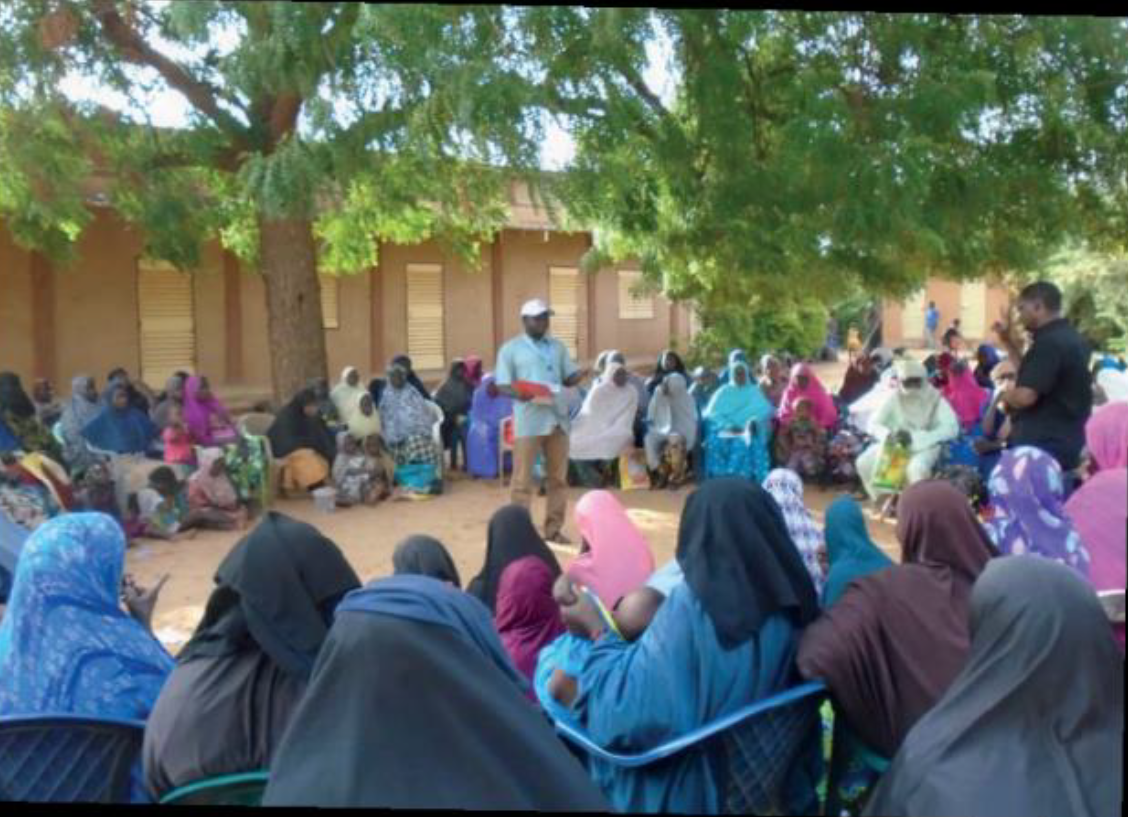
Located between Sub-Saharan Africa and the Maghreb, Niger has become a transit country for an increasing number of migrants from West and Central African countries seeking access to Europe. Many of these migrants are turned back in the Maghreb, and return to Niger.
This activity aims to improve refugees’ access to basic services and social inclusion in the city of Niamey. It seeks to fully engage the refugees, 60% of whom are women, in the implementation of the Government of Niger’s new National Social Policy and improve their access to social protection and basic services.
It has several components, including:
> Contributing to the implementation of centres of social promotion that will facilitate the access of the migrants to basic services and help them to participate in the social mobilisation in Niamey.
> Increasing access to protection services and contributing to the development of the new social protection policy that contains initiatives for refugees, in particular children and women.
> Strengthening refugees’ access to education and basic public services, with a focus on women and children.
This activity is implemented by Fédération Handicap International, and it was sponsored by UNICEF, AFD, and the French Embassy in Niger.
Nigeria: Inclusive Lagos Project: Embracing Diversity in the Megacity

With a population estimated up to 23 million, Lagos is the largest city in Africa, due in no small part to steady migration from across Nigeria and beyond. Despite a century of ethnic and religious coexistence in Lagos, recent “megacity development” has prioritised the wealthy and used non-citizenship to justify excluding migrants and immigrants in informal settlements.
Discrimination is also entrenched in government offices and the judiciary, where migrants who attempt to apply for title documents are often denied and wealthy families make customary land ownership claims to huge swaths of the city – relegating anyone who migrated to the city within the last century to permanent insecurity of tenure.
This project aims to identify and tackle the challenges facing migrant and immigrant populations in the African megacity of Lagos by scaling up outreach to slum communities that are largely populated by migrants and immigrants, helping them organise and gather data, and then engage with policymakers and government agencies to build a more inclusive Lagos.
Activities include:
> Producing comprehensive, community-generated data on migrant demographics and experiences in Lagos slums and the informal economy;
> Identifying key policy concerns for migrants in Lagos slums and participatory development of an advocacy agenda;
> Providing training and ongoing support for a network of migrant community-based paralegals in Lagos slums so they can provide grassroots legal services to migrants; and
> Engaging in strategic advocacy and litigation led by migrants in the slums to make Lagos a more inclusive city.
This activity was sponsored by SDI and is being implemented by the Community Legal Support Initiative.
South Africa: Migration and Shaping the Inclusive City: the case of Durban, South Africa
Check out the project website: http://durbanmigration.org.za/
Read a Blog about how the project is tackling the gendered nature of xenophobia in the city and how it is contributing to making women's voices heard.

This project aims to develop a network of partners who can inform a city-led response to migrants in Durban that focuses on social inclusion, integration and participation. It has a multi-tiered educational and awareness component that actively works to shift problematic and xenophobic sentiment towards migrants and those seen as ‘foreign’.
Inclusive, participatory local planning and decision-making remains a challenge within the city of Durban. This project aims to develop a network of partners who can inform a city-led response to migrants in Durban that focuses on social inclusion, integration and participation.
This project is a collaborative partnership between two civil society organisations, one established (the Democracy Development Programme) and one emerging (ASONET), and a research unit within a South African public university (UFC at the Durban University of Technology). The partners have designed the activity to facilitate a critical discussion with relevant stakeholders on the lack of a responsive, inclusive policy framework on migrancy and against xenophobia. It is a unique approach, initiating discussions of policy and government response from the bottom up instead of a traditional top-down approach.
The activity involves collecting oral histories from migrant women in the city. These narratives of arriving and living in Durban are the starting point for reflective conversations and dialogue with community and local government stakeholders. Using women’s stories as a foundation ensures that intersecting axis of power and discrimination are addressed within the community dialogue. These community dialogue sessions bring together diverse stakeholders from the state and civil society sectors, as well as migrants themselves, to collectively think through how the city of Durban can design a more responsive and inclusive policy framework for migration and against xenophobia.
In addition to a strategic report on policy implications of the research and dialogue sessions, the project also aims to reach a wider public audience. The oral histories and dialogues produced through project will be scripted into a drama piece for community radio shows and performed as a community theatre production in various locations.
